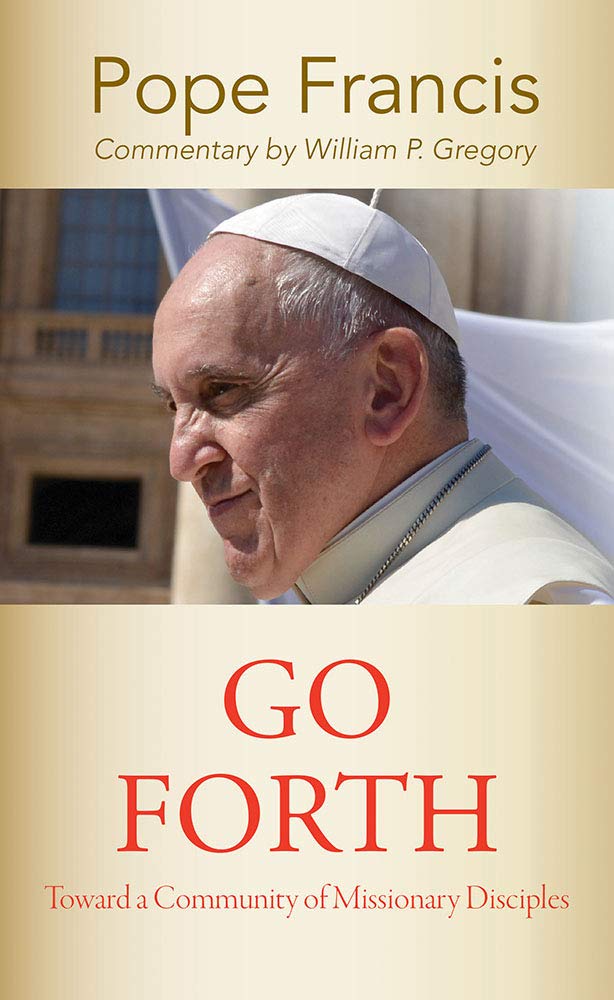| Posted August 28, 2019 | By William P. Gregory, Ph.D. | Categorized under Missiology and Theory |
 In late 2015, Robert Ellsberg of Orbis Books contacted me to ask if I would be willing to edit a volume of Pope Francis's statements on mission. I immediately said "yes." I, of course, had followed Francis in the news since his election in 2013 and been captivated by his simplicity, his humility, his manner of engaging people, and his unprecedented critique of church leaders in Evangelii Gaudium. But I had not yet acquired a deep knowledge of his views. So, I very much welcomed the opportunity to work on the project.
In late 2015, Robert Ellsberg of Orbis Books contacted me to ask if I would be willing to edit a volume of Pope Francis's statements on mission. I immediately said "yes." I, of course, had followed Francis in the news since his election in 2013 and been captivated by his simplicity, his humility, his manner of engaging people, and his unprecedented critique of church leaders in Evangelii Gaudium. But I had not yet acquired a deep knowledge of his views. So, I very much welcomed the opportunity to work on the project.
When we spoke, Ellsberg remarked that there were many in the U.S. Catholic church, including bishops, who seemed to be completely missing the missionary direction and agenda Francis was setting for the church. What was needed was a book that would show these things clearly and simply, drawing primarily on the pope's own words. Everything I would need was in English translation on the Vatican website.
So, I got to work. Over the next year I downloaded and read more than three thousand pages of Francis's speeches, audiences, and other statements. The depth and breadth of his missiological reflections were remarkable. There were teachings on every aspect of social mission, on proclamation and inculturation, on ecumenism and interreligious dialogue, on spiritual obstacles to mission, on bad missionary practice, and on the intellectual virtues at work in effective missionary engagement. All of this was suffused with theological insight and united to a profound call for the whole church to "go forth" out of its all too frequent non-missionary state.
As one familiar with prior Catholic magisterial teaching on mission, the novelties in particular stood out to me. Never before had a pope pointed out so directly the church's missionary faults and failings. Never in modern times had so sweeping a call for the church's missionary transformation been issued. And never had I seen the necessity and the beauty of mission presented in such compelling terms. To cite two papal biographers, I found Austen Ivereigh's description of Francis as "the Great Reformer" quite apt, and with Paul Vallely I saw that Francis was indeed engaged in a "struggle for the soul of Catholicism"-a struggle to make it more mission-oriented and more faithful to Jesus. The more I read, the more I saw the truth of Ellsberg's remark and the more Francis's words to the church seeped into my soul, challenging me.
Organizing the book took time, more than I originally anticipated. Reading Evangelii Gaudium, Pope Francis's 2013 apostolic exhortation, helped me identify many of the major themes the book would explore. But I soon discovered other themes, equally central to the pope's understanding of mission, that were hardly elaborated at all in Evangelii Gaudium. Several of these-including discernment, closeness, dialogue, accompaniment, corruption, prayer, and hope-I found were not developed at great length in any of his statements. Faithfully presenting these aspects of his thought would require a serious effort of compilation.
And that turned out to be one of the distinguishing features of the volume as it came to completion in the summer of 2018. Most edited collections of Pope Francis's teachings compile several dozen of his texts. Go Forth: Toward a Community of Missionary Disciples would ultimately compile over six hundred texts, all in order to convey the full force and sweep of the pope's message of missionary reform.
To every baptized believer and to every church community, Francis addresses these words: A wounded world awaits us. Our Lord awaits us. Will we follow him on the paths of mission? Will we be a church that shines?